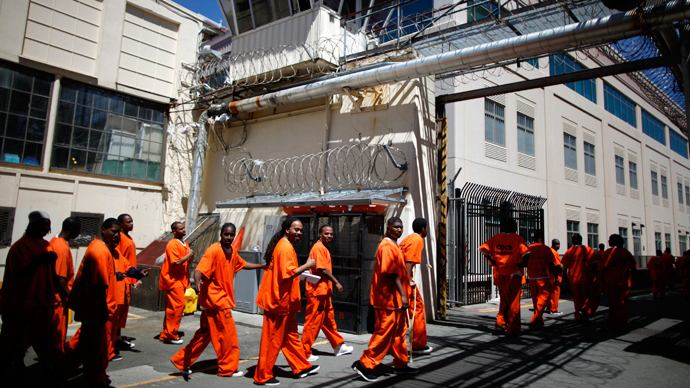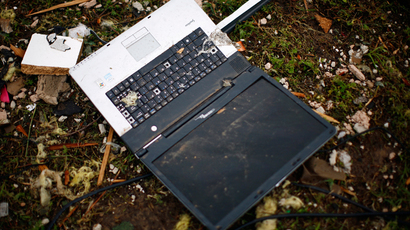Record number of Americans exonerated in 2013

A record number of Americans were set free in 2013 after being wrongfully convicted of a crime, according to new data from the National Registry of Exonerations.
According to the report, 87 people were exonerated in the United States last year, and 40 of those freed were related to murder convictions. Almost 20 percent of all cases involved individuals who originally pleaded guilty to the charges they were accused of, primarily because they were offered a reduced sentence in exchange for their admission of guilt.
As the Guardian noted, nearly a third of the people exonerated were involved in cases where it was later revealed that a crime was never committed in the first place. Some individuals, such as Nicole Harris – originally convicted of murdering her four-year-old son – spent years in prison before being released.
According to the registry, Harris was “coerced” into confessing her guilt after officers detained her for a 27-hour period in which they threatened and pushed her, denied her food and water, and refused to let her use the restroom. It was later found that her son’s brother watched her son wrap an elastic band from a fitted bed sheet around his neck while playing, and likely caused his death by asphyxiation – a story the jury never heard since a judge ruled the boy incompetent to testify.
While it may be logical to think the rise in exonerations is attributed to sophisticated DNA evidence, the report actually details a significant decline in cases overturned due to such evidence. University of Michigan law professor Samuel Gross, who helps edit the registry, linked the decline to the fact that police agencies and prosecutors are more likely to investigate themselves. More than 30 percent of exonerations were connected to the police reopening cases or sharing information with other agencies.
"The sharp, cold shower that DNA gave to the criminal justice system has made us realize that we have to re-examine other cases as well," he told National Public Radio. "That was a serious wake-up call, because that showed we made mistakes in a lot of cases where it never occurred to anybody that a mistake had been made."
“I think this reflects that prosecutors and judges have become more sensitive to the dangers of false accusations and are more willing to consider that a person is innocent even where this is no DNA to test or an alternative perpetrator coming forward,” he told the Guardian.
Since 1985, more than 1,300 people have been exonerated of wrongful convictions, the registry noted.
Still, not everyone agrees that 2013’s record year is due to a new willingness by law enforcement to police itself. Although cities such as New York, Chicago, and Los Angeles have established “conviction integrity units” dedicated to reviewing past convictions, Scott Burns of the National District Attorneys Association said agencies are finally spending money to do what they've always done.
"We always did that, we just didn't call them something," Burns said to NPR. "We always reviewed big cases, multiple murders or high-profile cases. What you're seeing now is that it's institutionalized — it's given a name, probably a line item on a budget in a large office — and that's good as well."
"Anything we can do to ensure the integrity of a conviction is a positive and good thing, and we're for that."














